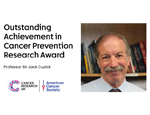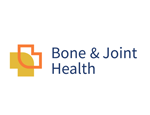Medicine and Dentistry
 ‘Rogue’ DNA rings reveal earliest clues to deadly brain cancer’s growth
‘Rogue’ DNA rings reveal earliest clues to deadly brain cancer’s growth9 September 2025
 Queen Mary students claim top honours in the University of London Gold Medal Competition 2025
Queen Mary students claim top honours in the University of London Gold Medal Competition 20251 September 2025
Queen Mary students won three of the four awards at the annual competition, which recognises outstanding medical and dental students from London-based universities.
 Breakthrough life-extending treatment for advanced bladder cancer available on NHS
Breakthrough life-extending treatment for advanced bladder cancer available on NHS 21 August 2025
The new combination treatment offers hope to thousands of people living with advanced urothelial cancer. The clinical trials, led by Queen Mary University of London’s Professor Tom Powles, showed overall survival rates were almost twice as long with this new treatment compared to the current standard treatment.
 KidneyGenAfrica: a pan-African partnership to deliver research and training excellence in genomics of kidney disease
KidneyGenAfrica: a pan-African partnership to deliver research and training excellence in genomics of kidney disease20 August 2025
Queen Mary's PHURI is a founder member of a new pan-African partnership which aims to deliver research and training excellence in genomics of kidney disease. In a comment published in Nature Genetics today, the team outlines the urgent need for such a consortium in Africa and the framework they have developed to make it a reality.
 How immune cells communicate to fight disease and cancer
How immune cells communicate to fight disease and cancer 11 August 2025
An interdisciplinary team of scientists from the Berlin Institute of Health at Charité (BIH), the Max Delbrück Center, the German Cancer Research Center (DKFZ), the Heidelberg Institute for Stem Cell Technology and Experimental Medicine (HI-STEM) and Queen Mary University of London has developed a technology to decode immune cell communication.
 Offering self-collection kits in routine GP appointments could prevent 1,000 women a year from developing cervical cancer
Offering self-collection kits in routine GP appointments could prevent 1,000 women a year from developing cervical cancer 30 July 2025
Home-testing kits for HPV will soon be offered to women in England who are overdue for cervical cancer screening, giving women the option to stay up to date with cervical screening without having to have an internal examination.
 When should preventive mastectomy be offered for women at higher risk of breast cancer
When should preventive mastectomy be offered for women at higher risk of breast cancer25 July 2025
More women at higher risk of breast cancer should be offered a mastectomy, according to researchers at Queen Mary and London School of Hygiene and Tropical Medicine.
 A breath test could help us detect blood cancers
A breath test could help us detect blood cancers23 July 2025
Molecules exhaled in the breath may help detect blood cancer, according to new research from Queen Mary University of London. The findings could enable the development of a blood cancer breathalyser, providing a rapid, low-cost way to detect disease. This tool may be particularly useful for areas with limited access to specialist equipment or expertise.
 Short-term digital mental health interventions reduces depression and anxiety in Ukrainian children and adolescents displaced by war
Short-term digital mental health interventions reduces depression and anxiety in Ukrainian children and adolescents displaced by war18 July 2025
In a first of its kind randomised controlled trial, researchers found delivering a problem solving digital mental health intervention to young Ukrainian refugees significantly reduced symptoms of depression and anxiety. The findings show that a small, low-cost, scalable intervention delivered in schools through mobile devices may support the mental health of millions of displaced young people.
 New drug offers hope of cure for hormone-driven high blood pressure
New drug offers hope of cure for hormone-driven high blood pressure14 July 2025
The commonest single cause of high blood pressure can be reversed with a new class of medicine, according to results from a clinical trial led by Queen Mary University of London.
 New understanding of how red blood cells are created could make artificial blood easier to make
New understanding of how red blood cells are created could make artificial blood easier to make4 July 2025
Studies undertaken by researchers at Queen Mary and University of Konstanz have identified a critical chemical signal in the development of red blood cells. The discovery will help make the manufacture of artificial blood more efficient.
 New drug tackles uncontrolled hypertension caused by aldosterone dysregulation
New drug tackles uncontrolled hypertension caused by aldosterone dysregulation
1 July 2025
Results from a clinical trial of a novel aldosterone synthase inhibitor, lorundrostat, found it significantly reduces systolic blood pressure in adults with uncontrolled hypertension (uHTN) or resistant hypertension (rHTN).
 Professor Sir Jack Cuzick awarded CRUK's inaugural Outstanding Achievement in Cancer Prevention Research Award
Professor Sir Jack Cuzick awarded CRUK's inaugural Outstanding Achievement in Cancer Prevention Research Award27 June 2025
Professor Cuzick has been honoured for his exceptional and sustained contributions to the field of prevention research. His research has made transformative contributions to cancer prevention on a global scale.
 Women will receive home testing kits for cervical cancer, a move informed by Queen Mary research
Women will receive home testing kits for cervical cancer, a move informed by Queen Mary research24 June 2025
Queen Mary’s research on self-sampling for cervical cancer was highly influential in the decision to offer home testing kits for cervical cancer screening, which has been announced today as part of the upcoming NHS 10 Year Plan.
 New research identifies four epidemiological stages of Inflammatory bowel disease (IBD)
New research identifies four epidemiological stages of Inflammatory bowel disease (IBD)16 June 2025
The research, published in Nature, gives an opportunity for health-care systems to pinpoint where their region sits on this trajectory and provides a clear roadmap for anticipating and managing the growing burden of IBD today and in the future.
 Largest twin study explores whether the environment affects people differently depending on their genes
Largest twin study explores whether the environment affects people differently depending on their genes10 June 2025
An international team including researchers from Queen Mary have identified genetic factors that may make some individuals more or less sensitive to the environments they experience.
 Antibiotics taken during pregnancy may reduce preterm births
Antibiotics taken during pregnancy may reduce preterm births5 June 2025
A study of almost 1000 pregnant women in Zimbabwe found that a daily dose of a commonly used, safe and inexpensive antibiotic may have led to fewer babies being born early. Among women living with HIV, those who received the antibiotic had larger babies who were less likely to be preterm.
 New injection could help millions with high blood pressure
New injection could help millions with high blood pressure29 May 2025
Results from a clinical trial led by researchers from Queen Mary University of London, published yesterday in JAMA, show that giving people with high blood pressure an injection every six months can lead to a meaningful, sustained reduction in their blood pressure.
 Professor Claudia Langenberg and Professor Jonathan Grigg elected as Fellows of the Academy of Medical Sciences
Professor Claudia Langenberg and Professor Jonathan Grigg elected as Fellows of the Academy of Medical Sciences22 May 2025
Two Professors from Queen Mary join 54 exceptional biomedical and health scientists elected by the Academy to its prestigious Fellowship.
 Professor Morris Brown elected as Fellow of the Royal Society
Professor Morris Brown elected as Fellow of the Royal Society20 May 2025
Professor Morris Brown MD FRCP FMedSci FRS has been elected to the Fellowship of the Royal Society, the UK’s national academy of sciences. He is one of 90 outstanding scientists from the UK and internationally who have joined the prestigious body this year.
 Beyond ‘one size fits all’: Study reveals ethnic differences in breast cancer development and outcomes, demanding tailored care approaches
Beyond ‘one size fits all’: Study reveals ethnic differences in breast cancer development and outcomes, demanding tailored care approaches20 May 2025
Women of African or South Asian genetic ancestry tend to develop breast cancer and die at a younger age than women of European ancestry, according to new research by Queen Mary University of London. The study also found important genetic differences in these women’s cancers that could impact their diagnosis and treatment.
 Dementia Action Week: the importance of a timely diagnosis
Dementia Action Week: the importance of a timely diagnosis19 May 2025
As many as 1 in 4 men and 1 in 3 women will develop dementia in their lifetime. Getting a timely diagnosis is important as it allows people to understand and get treatment for their symptoms, access help and support, and plan for the future.
 Centre for Bone and Joint Health established at Queen Mary
Centre for Bone and Joint Health established at Queen Mary13 May 2025
The Centre for Bone and Joint Health at Queen Mary brings together experts across musculoskeletal care to drive research that improves the health of people with bone and joint disorders and injuries.
 New study sheds light on health differences between sexes
New study sheds light on health differences between sexes13 May 2025
The results of an international study led by researchers from Queen Mary University of London’s Precision Healthcare University Research Institute (PHURI) shed new light the underlying biological mechanisms which cause differences in health risks, symptoms and outcomes between males and females.
 New combination treatment could extend the lifetime of people with amyotrophic lateral sclerosis (ALS)
New combination treatment could extend the lifetime of people with amyotrophic lateral sclerosis (ALS)13 May 2025
The results of the MIROCALS randomised clinical trial showed that adding low-dose interleukin-2 (IL2LD) to standard treatment for this degenerative disorder slowed functional decline and extended the lifespan of people with ALS.
 Blood test for many cancers could potentially thwart progression to late stage in up to half of cases
Blood test for many cancers could potentially thwart progression to late stage in up to half of cases9 May 2025
A single blood test for the chemical signals of many different types of cancer could detect the disease at its early stages, making it easier to treat for almost 50% of patients
 New algorithms can help GPs predict which of their patients have undiagnosed cancer
New algorithms can help GPs predict which of their patients have undiagnosed cancer7 May 2025
Two new advanced predictive algorithms use information about a person’s health conditions and simple blood tests to accurately predict a patient’s chances of having a currently undiagnosed cancer, including hard to diagnose liver and oral cancers.
 A new era for healthy ageing: ACHA launches in North East London
A new era for healthy ageing: ACHA launches in North East London1 May 2025
The Academic Centre for Healthy Aging (ACHA) is a landmark collaboration between Barts Health NHS Trust, Queen Mary University of London, and Barts Charity, focused on improving the health, wellbeing, and care of older adults in north-east London and beyond.
 Breakthrough approach for diagnosing TB could significantly improve detection
Breakthrough approach for diagnosing TB could significantly improve detection 24 April 2025
A new strategy for tuberculosis (TB) screening, proposed by a team of researchers led by Queen Mary University of London, provides a solution to problems with current TB screening, which does not always accurately detect disease.
 Professor Sir Mark Caulfield elected member of the Medical Research Council
Professor Sir Mark Caulfield elected member of the Medical Research Council2 April 2025
Professor Caulfield, Vice-Principal (Health) at Queen Mary, joins twelve other senior figures from health, science, and medicine on the Council.